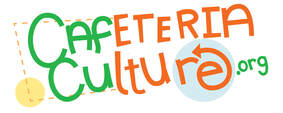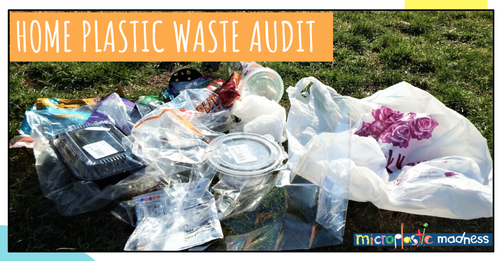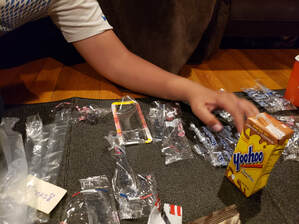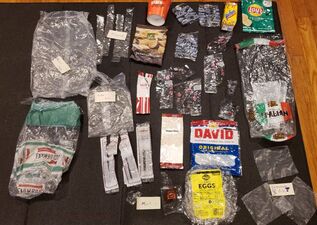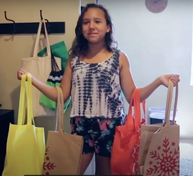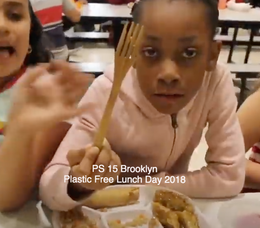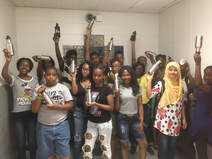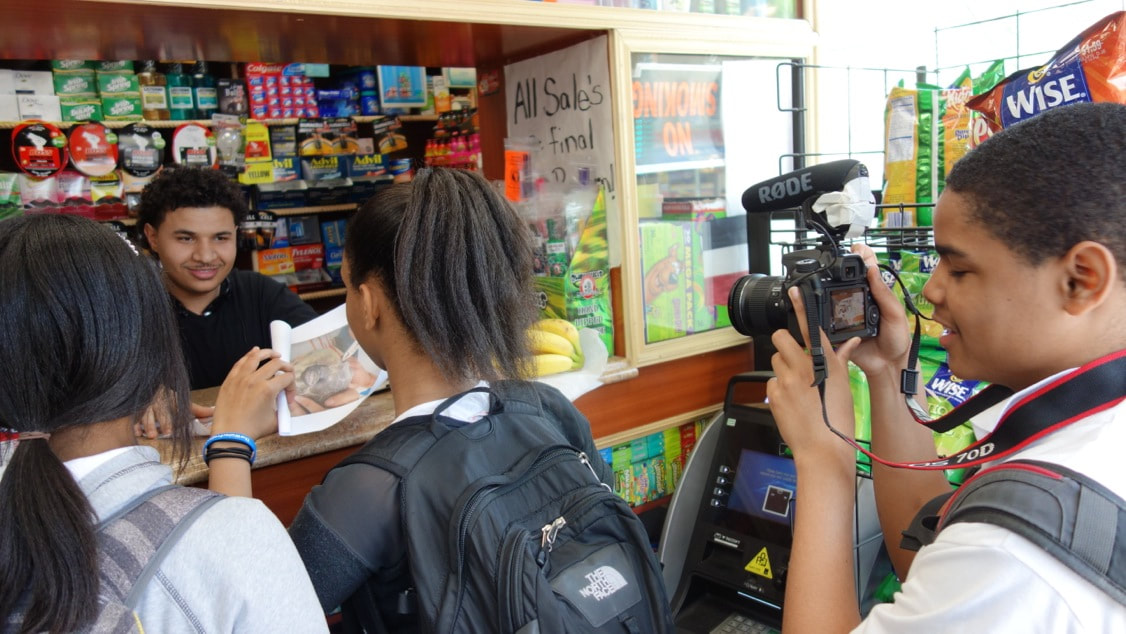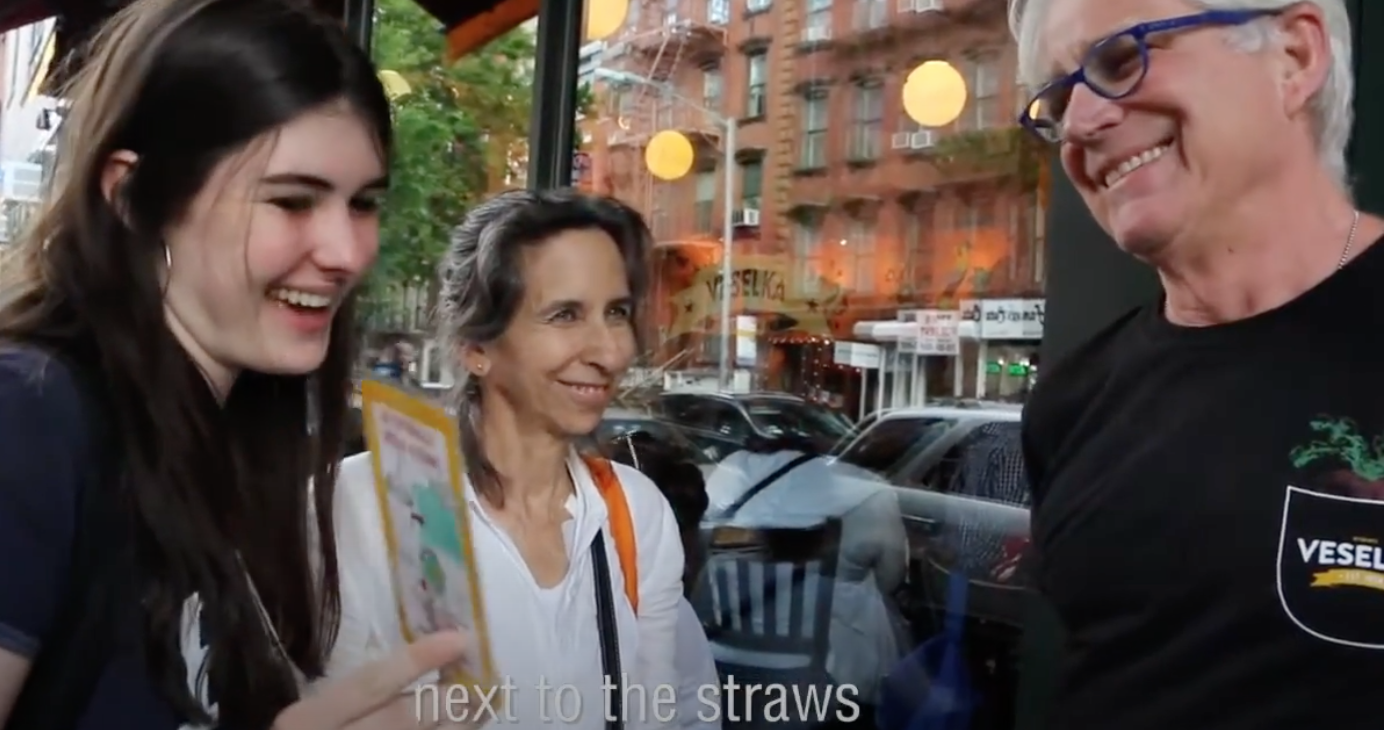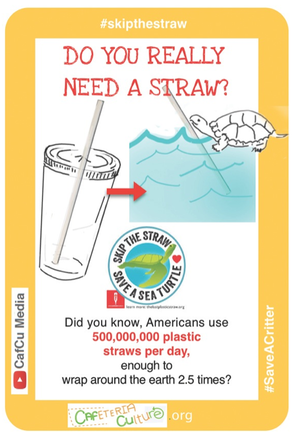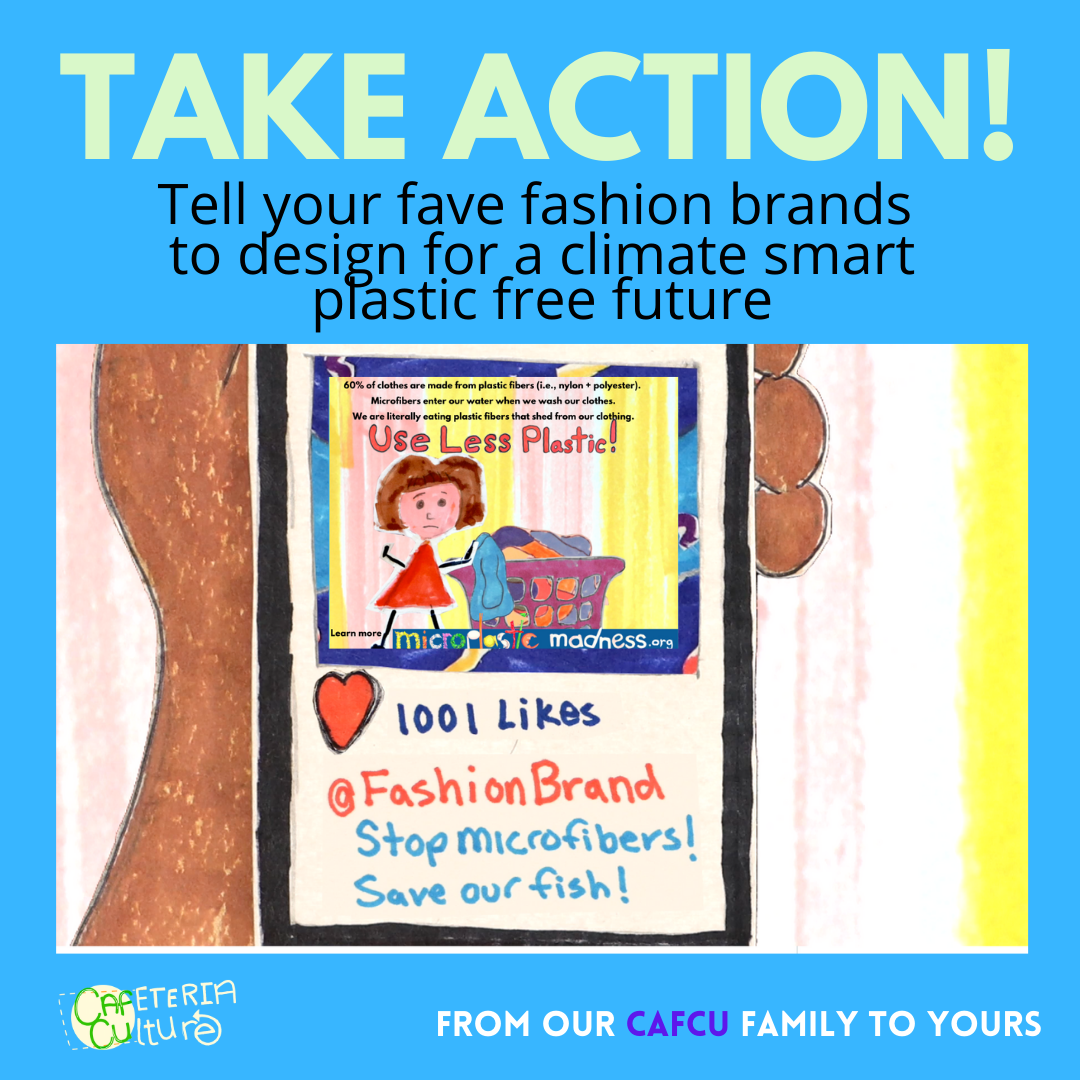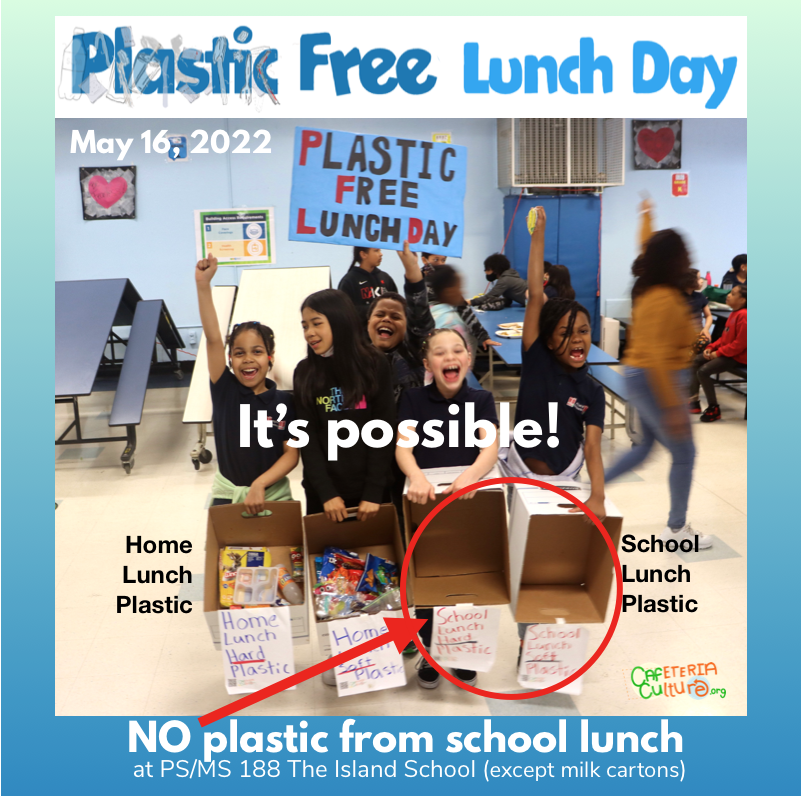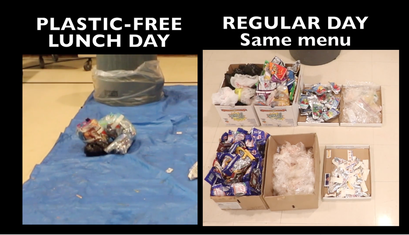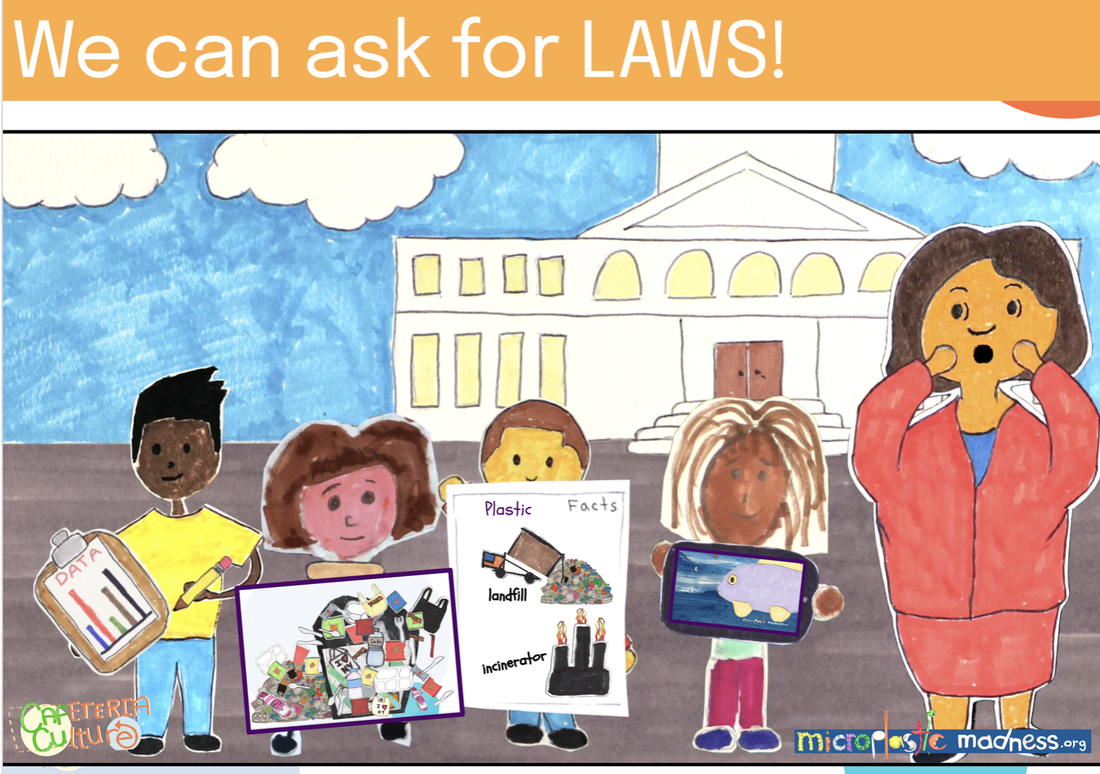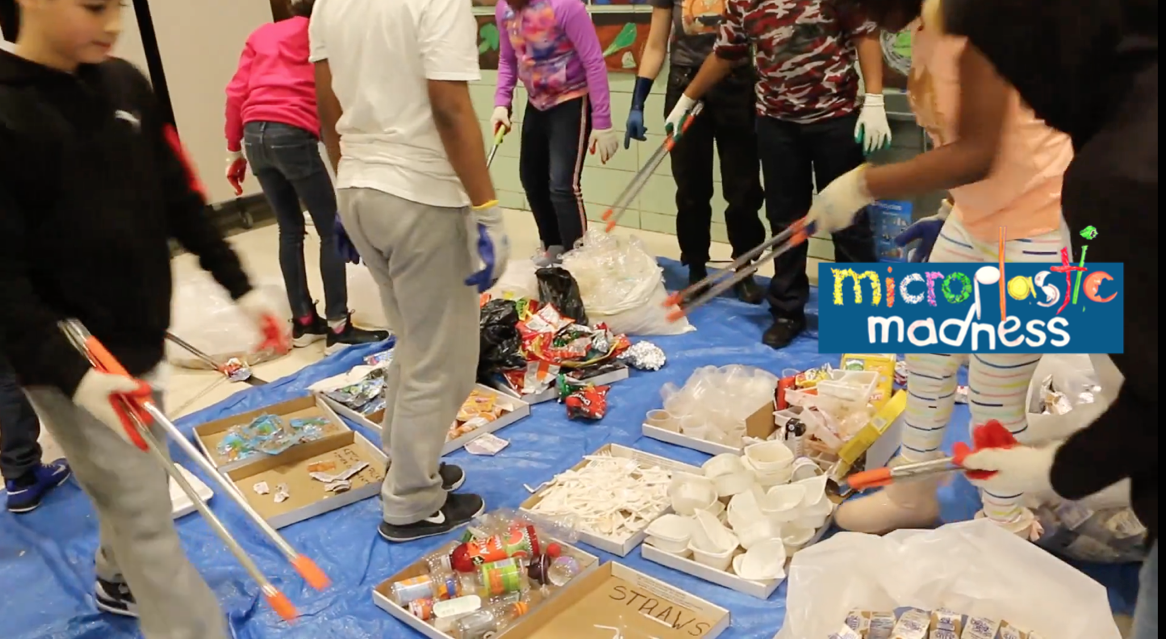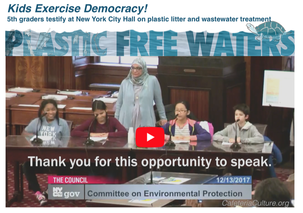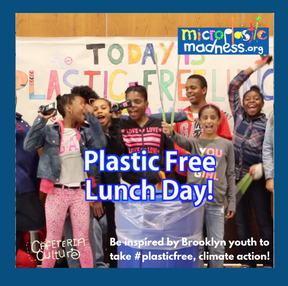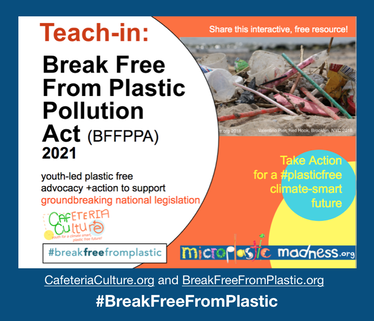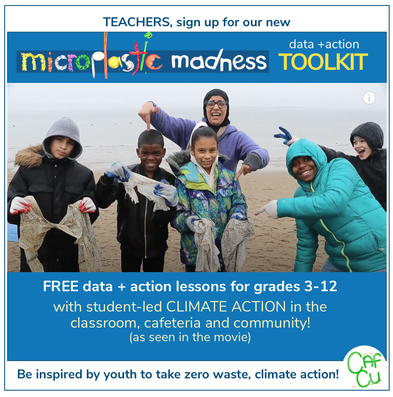Recipe for #plasticfree Change
4-steps, starting with a home waste audit!
When people first learn about the plastic pollution crisis,
they want to take action,
They often ask, "Where do I start?”
We suggest starting with a simple
One Week Home Waste Audit⬇︎
(or a Classroom Waste Audit)
One Week Home Waste Audit⬇︎
(or a Classroom Waste Audit)
|
This is an easy way to get a picture of the amounts and types of plastics you and your household actually use each week, and what specific steps you can take to reduce the use of each specific item.
Next, move on to these 4 steps:1. PERSONAL/ HOME: items you have control over; you can reduce simply by refusing to take.
Your consumer dollars have power. Consider which plastic items are part of your shopping routine, such as plastic packaging, bags, utensils, and cups, that are easy to avoid. ACTION IDEAS:
2. LOCAL SHOPPING: single-use plastics that are routinely included with your to-go food or retail store purchases, such as plastic bags, straws, cutlery and, excess packaging. These items are often not needed or replaceable with more sustainable choices. Store managers may not be thinking about this. ACTION IDEAS:
3. MANUFACTURERS: Single-use plastics packaging used for shipping, and as part of the design of containers, and excessive, non-recyclable plastic wrap used for produce, snack foods, clothing, and electronics. ACTION IDEAS:
Keep going!
This part is MOST IMPORTANT for system-wide change (***youth-led action urgently needed here)! 4. POLICY: School food policies that eliminate polystyrene (aka, styrofoam) trays and other single-use plastics, such as mustard and ketchup packets, are also urgently needed and an excellent starting point for students, parents/guardians, & school staff for climate-smart change on a hyper-local level!
Well crafted local, state and national laws can stop plastic pollution “upstream” and lead to long-lasting change. These include bans on single-use plastics, such as shopping bags, straws, utensils, foam cups, as well as laws to hold manufacturers responsible for the end-life of their products (aka, Extended Producer Responsibility). ACTION IDEAS: SCHOOL FOOD - Meet with your school food director and principal to suggest reducing single-use plastics in your school cafeteria. If you can collect data first, you will have a stronger case for change! Suggest a PLASTIC FREE LUNCH DAY, as led by NYC 5th grade students in our movie, MICROPLASTIC MADNESS! LEGISLATION - Call, write, or ask to meet with your local, state, and national elected representatives! Share your data from home and schools waste audits and street litter surveys. Let them know that you support zero waste policies, such as laws, fees, bans and other incentives that reduce single-use plastic waste (and promote composting and other initiatives that reduce food waste); share WHY this is important to you and your community. See our TAKE ACTION Page -> Learn about the PLASTIC POLLUTION CRISIS here - If this all sounds intimidating:
- Start an Eco Club or Plastic Free Lunch Club at your school and inspire others to help you! - Use our Teach-in Tool ⬇︎ to educate your peers, school staff and electeds. - Host a screening of MICROPLASTIC MADNESS. - Create a plastic waste installation or giant data puppets to build momentum for community and youth-led zero waste, #plasticfree action! |
MORE IDEAS AND RESOURCES
Need inspiration?
Watch MICROPLASTIC MADNESS! (see the trailer here-)
Educate others! Host a screening of MICROPLASTIC MADNESS ->
Learn about the PLASTIC POLLUTION CRISIS here ->
Lead a PLASTIC FREE LUNCH DAY at school or work!
Learn how ->
TAKE (ZERO WASTE) ACTION here->
our free MICROPLASTIC MADNESS TOOLKIT - for grades 3-12
FIND MORE EDUCATIONAL RESOURCES HERE ->
**Gauri's Student Guide for Getting Styrofoam Out of Your School!
How to Drive Change In Your School Cafeteria - A Guide for High School Students,
Need inspiration?
Watch MICROPLASTIC MADNESS! (see the trailer here-)
Educate others! Host a screening of MICROPLASTIC MADNESS ->
Learn about the PLASTIC POLLUTION CRISIS here ->
Lead a PLASTIC FREE LUNCH DAY at school or work!
Learn how ->
TAKE (ZERO WASTE) ACTION here->
our free MICROPLASTIC MADNESS TOOLKIT - for grades 3-12
FIND MORE EDUCATIONAL RESOURCES HERE ->
**Gauri's Student Guide for Getting Styrofoam Out of Your School!
How to Drive Change In Your School Cafeteria - A Guide for High School Students,
